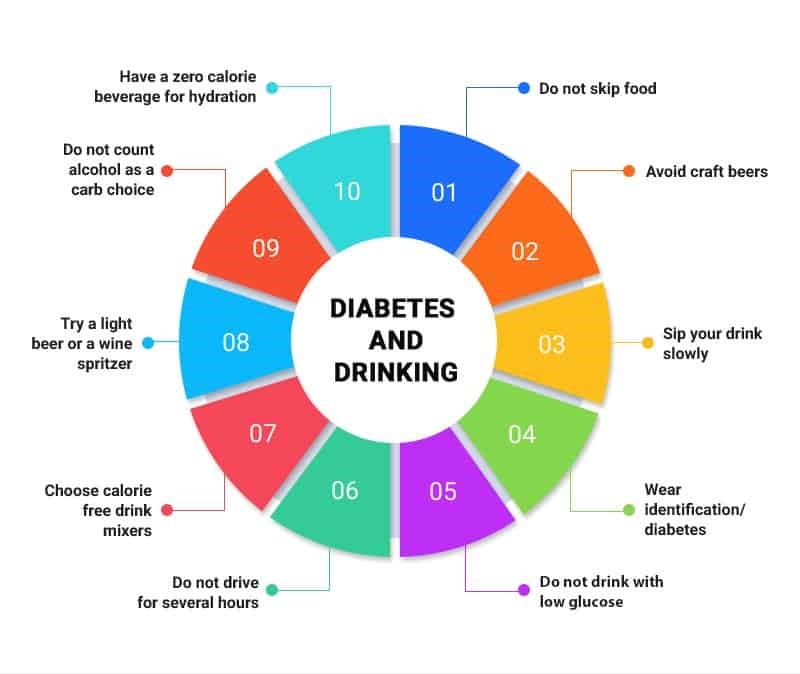
Alcohol consumption can have a significant impact on diabetes management. Here’s a concise overview of the relationship between diabetes and alcohol:
1. Effects on Blood Sugar Levels
Hypoglycemia: Alcohol can lower blood sugar levels, especially when consumed on an empty stomach. This is because alcohol inhibits the liver’s ability to release glucose into the bloodstream.
Hyperglycemia: Mixed alcoholic beverages containing sugary mixers can raise blood sugar levels.
2. Calories and Weight Management
Alcohol is calorie-dense (7 calories per gram), and excessive consumption can lead to weight gain, complicating diabetes management.
3. Medication Interactions
Alcohol can interact with diabetes medications (e.g., insulin or sulfonylureas), increasing the risk of hypoglycemia.
4. Chronic Effects
Long-term excessive alcohol use can contribute to insulin resistance and worsen diabetic complications, such as neuropathy and cardiovascular disease.
5. Moderation Guidelines
For people with diabetes, moderate alcohol consumption is often defined as:
Men: Up to two standard drinks per day.
Women: Up to one standard drink per day.
A “standard drink” is typically:
12 oz of beer (5% alcohol)
5 oz of wine (12% alcohol)
1.5 oz of spirits (40% alcohol)
6. Practical Tips
Never drink on an empty stomach: Pair alcohol with food to reduce the risk of hypoglycemia.
Monitor blood sugar levels: Check levels before and after drinking.
Choose wisely: Opt for dry wine, light beer, or unsweetened mixers.
Be cautious with symptoms: Hypoglycemia symptoms can mimic intoxication.
